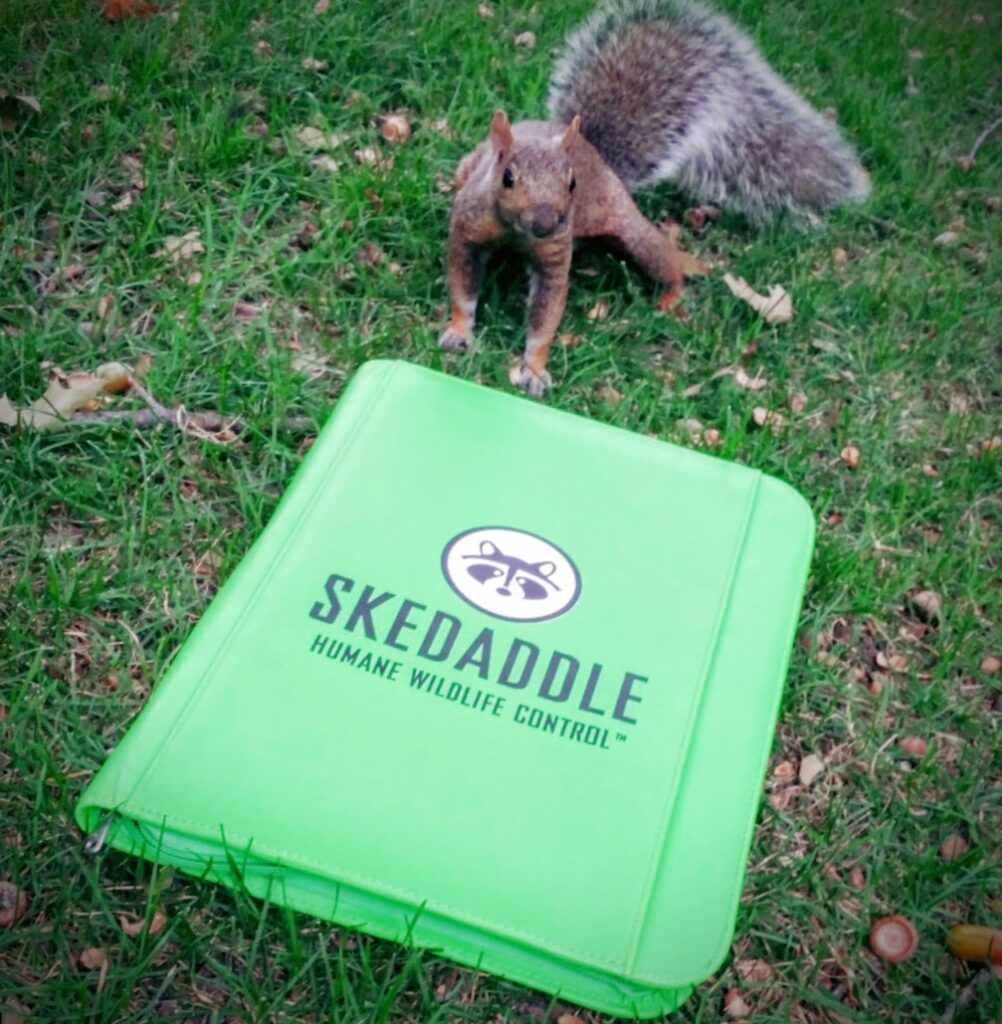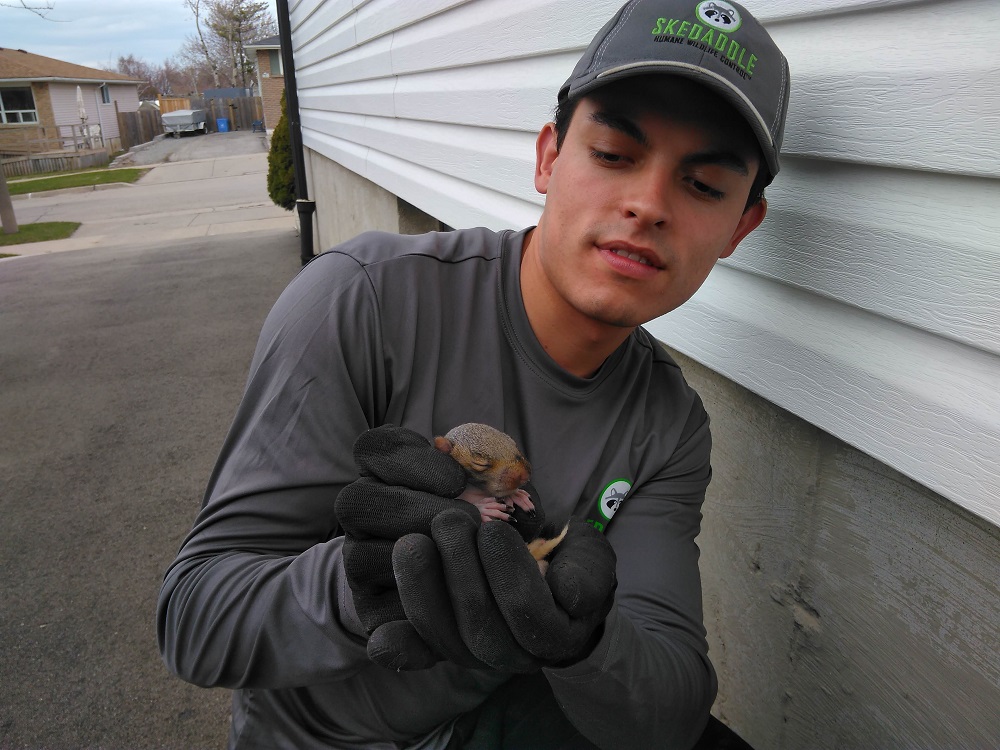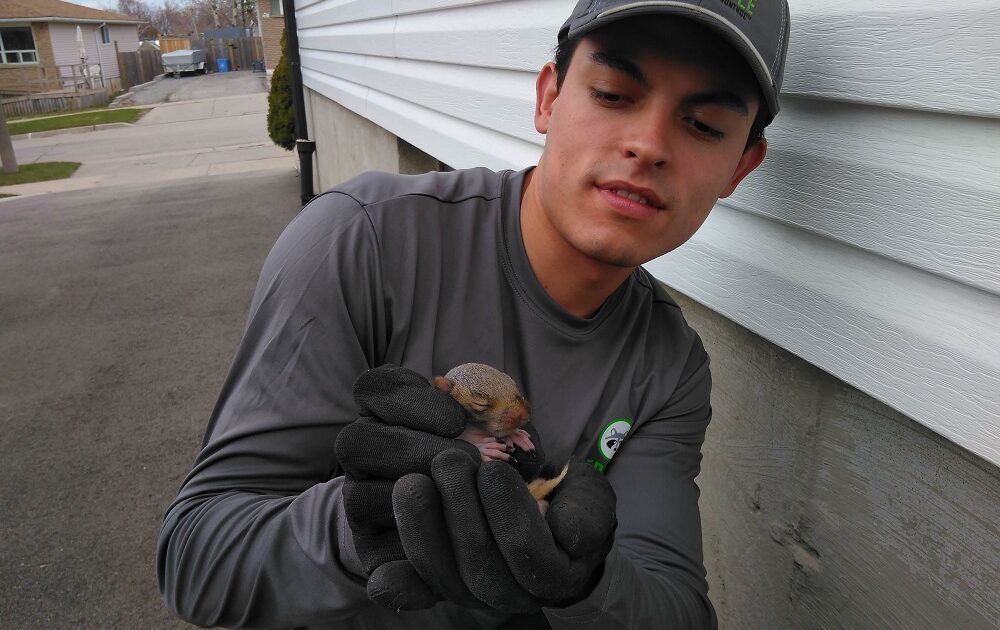Squirrels are pretty cute and are bound to tug at your heart whether you see them in motion or catch them in one of those rare moments when they standstill. In the warmer seasons squirrels seem happy and comfortable. But how they manage in the winter? The answer lies in their biology- the same biology that squirrel control experts in Milwaukee rely on to give them clues on how to handle squirrel intrusions.
Biological Changes that Help squirrels Handle the Winter
Squirrels start to prepare for winter long in advance. As winter appears on the horizon, they change their eating habits, consuming more food and ‘bulking up’. This extra layer of body fat that squirrels acquire before winter acts as insulation, keeping body heat inside during the winter and keeping the cold out. It also makes it easier for squirrels to endure the food scarcity of winter while simultaneously lowering the need for foraging. This means squirrels get to spend more time in the warmth of their dens in the winter.
Genetic Advantage
Squirrels also benefit from internal systems that are designed to repel the cold of winter. One squirrel, in particular, the 13-lined ground squirrel has a pretty sweet genetic advantage when it comes to enduring the cold. This squirrel’s central nervous system does not recognize or detect low temperatures the way other mammals do. Instead the system detects cold at lower temperatures. Scientists discovered this after exposing the squirrels to low temperatures and noticing that the section of the animal’s nervous system designed to detect cold the TRPM8, barely responded. As a result, they concluded that temperatures have to get extremely low for these squirrels to feel the chill.
When a squirrel appears to be shivering from the cold, there’s actually more going on there. The shivers are actually helping the squirrel to keep warm. The vibrations help to generate heat to keep the body warm. In addition to that squirrels are physically active darting, scurrying or leaping from one place to the next. This constant movement also helps to generate heat and keep squirrels warm.
How Squirrel Behavior Helps them Handle the Winter
In the winter squirrels also share their den space as a means of combating the cold. By sharing a den, squirrels reap the benefit of combined body heat as they huddle together. These dens are often strategically designed to keep the cold out. Winter dens for squirrels include burrows in the earth, hollow portions of trees and of course human dwellings.

How Squirrel activity Might Affect You This winter
Even though squirrels have these defense mechanisms that help protect them from the cold, they are not 100% invulnerable. Their cold repellent nature does not mean that they never feel the cold and in extreme weather, they are just as susceptible to frostbite and hypothermia as other citizens of the wild. Squirrels, like any other living organism, will do what it takes to survive the cold. This may include moving in with you this winter, and since they often den in groups during the winter, you will likely encounter multiple squirrels in any one intrusion situation.
Expert Solutions – The Way to Go for Milwaukee’s Property Owners
Squirrel intrusions can result in extensive damage to your building and exposure of your family to diseases. If you find yourself unwillingly hosting squirrels this winter, you’ll need expert wildlife control services to clear your Milwaukee home of the unwanted guests. Remember though, that these little guys are simply following their instincts and trying to survive the winter. Don’t hold it against them. Instead find humane ways to keep them out and use humane wildlife control services when you need to have theme evicted.




